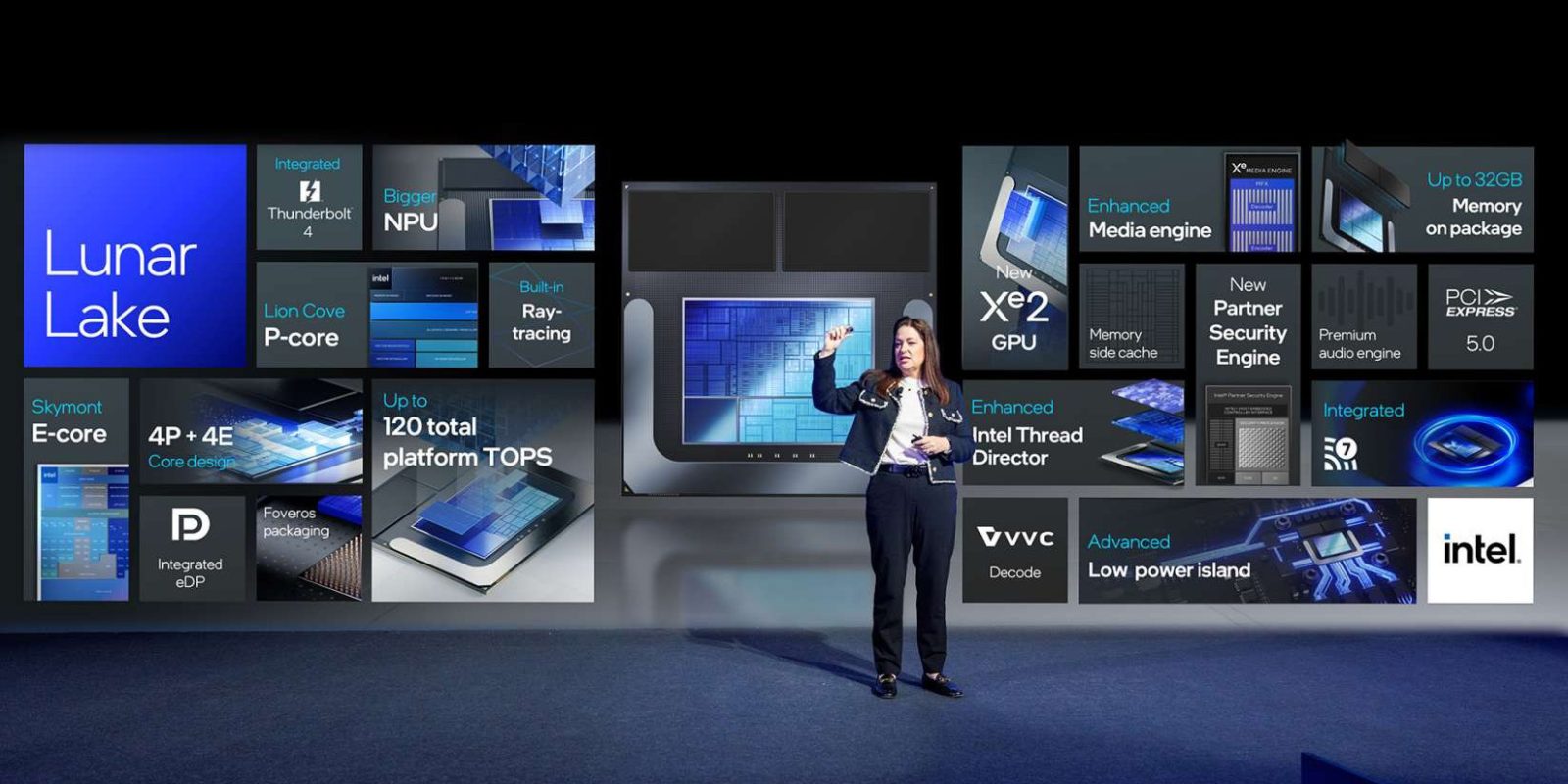
At Computex 2024, Intel has unveiled its latest “Lunar Lake” generation of chips which make big promises on battery life and AI capabilities for future Windows laptops.
Following up on AMD’s launch of the latest generation of Ryzen chips yesterday, Intel has announced “Lunar Lake.” This latest generation of x86-based chips will bring, according to Intel, major improvements to AI performance as well as better battery life with “breakthrough x86 power efficiency.”
Intel says, as brought out by The Verge, that “Lunar Lake” is “x86 power like you’ve never seen it before.” The company claims that the SoC will use up to 40% less power while offering 3-4x the AI compute power at up to 48 TOPS.
The company explains:
New Performance-cores (P-cores) and Efficient-cores (E-cores) deliver amazing performance at up to 40% lower system-on-chip power compared to the previous generation. A new neural processing unit is up to 4x faster, enabling corresponding improvements in generative AI, versus the previous generation. And new Xe2 graphics processing unit cores improve gaming and graphics performance by 1.5x over the previous generation.
The chips this year will use four power cores and four efficiency cores to improve battery life and performance, with both cores being considerably more powerful than on “Meteor Lake.”
One of the other big changes this year is that, like Apple and Qualcomm’s Arm-based chips, “Lunar Lake” chips will build the RAM into the chip itself. In other words, you won’t be able to swap it out yourself.
Intel says these chips will be available by the Q3 2024 and they’ll be found in over 80 different PCs from 20 different companies.
As pointed out by XDA, though, Microsoft isn’t supporting Intel or AMD’s new CPUs for Copilot+ PCs just yet. While both surpass the needed 40 TOPS of NPU performance, the new standard is just for Arm-based CPUs for now, apparently.
Eventually these chips will likely also appear in Chromebooks, but the latest generation has only just recently adopted Intel’s Core Ultra chips from last year.
More on Windows:
- AMD’s latest Ryzen chips best Snapdragon X Elite on AI
- Snapdragon X Elite laptops arrive in June; Here’s the full list and where to pre-order
- ‘Recall’ in Windows uses AI to search everything you’ve done on a ‘Copilot+ PC’
Follow Ben: Twitter/X, Threads, Bluesky, and Instagram
FTC: We use income earning auto affiliate links. More.




Comments